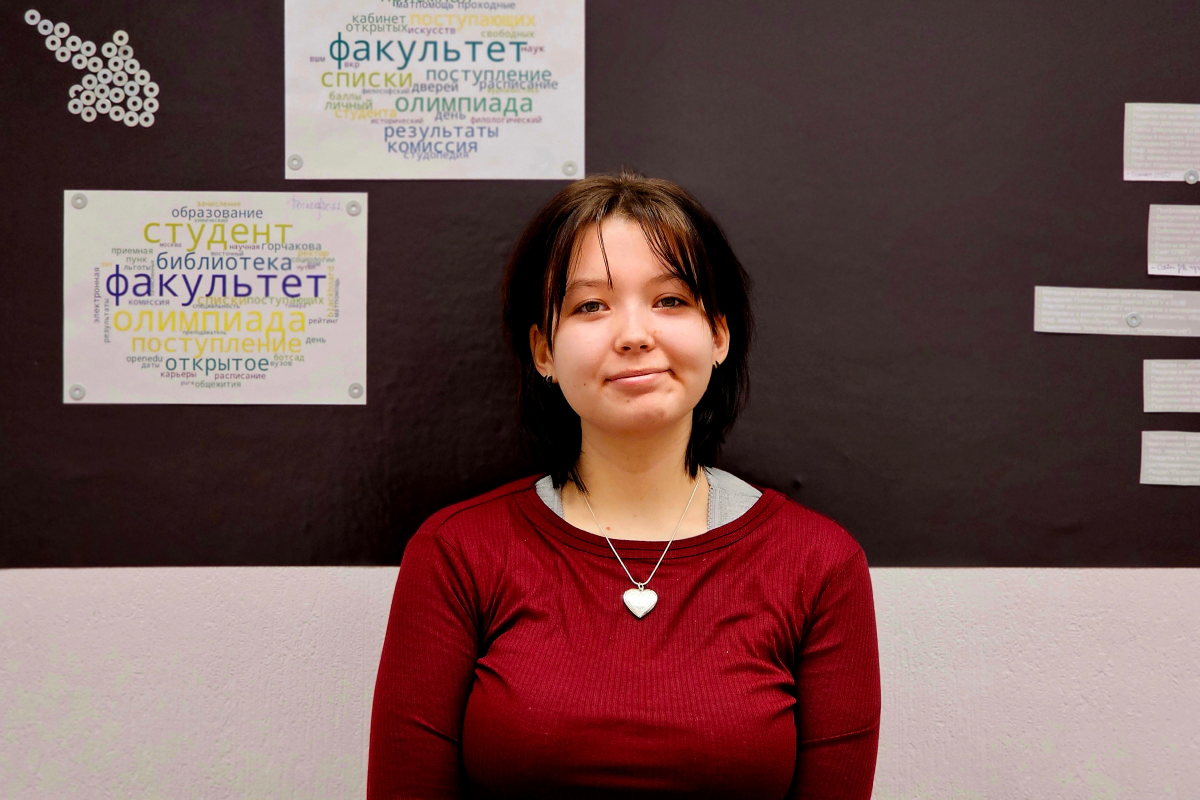South African SPbU Preparatory Course student: "I’d rather work with hardware, it’s harder to automate"

Courtney Speksnijders is a student at the St Petersburg University Preparatory Course with focus on engineering. She moved to Russia with her family and is now busy learning Russian before applying for an engineering degree.
How did you decide to study in Russia?
I’m from South Africa, born in Johannesburg — the biggest city in the country. I always knew I didn’t want to study there, so my parents thought Europe or the US would be better. But in the end, we chose Russia because with an African passport, getting a visa here is much easier.
I only started learning Russian last year — through free online courses for Africans. Then I decided to apply to SPbU because I had a brilliant tutor. I began in an advanced group —I’m already at B1 level, though my speaking scores aren’t great. Still, it helped a lot when I arrived in Russia last August — having that language base made adapting much easier.
Read reviews from students of SPbU Russian language courses in Africa
Did you face any challenges with the move?
Getting the green card was really tough, and it’s a crucial step for all foreign students here. After registering my address, I had to do a medical check-up and fingerprinting — I didn’t expect it to be so stressful.
Once, I queued for an entire day just to find out my card wasn’t ready yet. Luckily, I got mine earlier than other students. I know some had big issues — like their permit not being ready in time to extend their visa. It’s something people should know about beforehand.
That said, the staff at the Multifunctional Centre (MFC) were always polite and happy to answer questions.
How does studying in Russia compares to studying back home?
Studying in South Africa might be more convenient, but the education level in Russia is higher, also, applying to a private university at home can be really expensive. Life’s cheaper in Russia too, so the choice was obvious.
Back home, we often have water and electricity shortages —here, those are never a problem. Plus, the public transport is great — it’s my first time ever using buses and the metro! Not all the foods I’m used to are available here, but groceries are cheaper, and supermarkets are more conveniently located. The weather’s different too. In South Africa, winter might hit zero degrees, but without snow or ice — so I’m not used to slippery pavements! Though this year, Russia’s had surprisingly little snow.
I should add, there’s always something to do here compared to most of Africa. Recently, I visited the Russian Museum and the Artillery Museum, and I felt safe leaving my coat in the cloakroom — and no need constantly keep watch over my bag. I’m still cautious, of course, but here I explore the city at ease. I remember when I first arrived, I was in a car with a friend — he found it weird when I tried to hide my backpack under the seat.
Do you live in a dorm in Peterhof?
Actually, I moved out because the room was too small. Now I live in the Baltiyskaya Zhemchuzhina neighbourhood with my family — they came to Russia too.
My dad still works remotely for his old company in Africa but plans to start a farm near Moscow someday. My brother’s here too, though he’s leaving soon for a job in Europe. Living together feels cosier and safer. Since 2021, my parents had visited Russia a few times, but I stayed behind to finish school.
Have you made any Russian friends?
Not really, probably because I don’t live in a dorm. But I play online games on Russian servers — people there are always welcoming. They think it’s cute when a foreigner speaks Russian.
What is your method for studying Russian? Your progress in just a year is amazing!
Honestly, Russian is hard. Any progress I’ve made is because I’m always out talking to people. Since arriving, my skills have improved way faster than when I was studying abroad.
What’s the Preparatory Course like?
We’re at upper-intermediate (B2), mostly expanding vocabulary. My teacher, Anastasia Alexandrovna Levchenko, is fantastic — she teaches a lot about Russian culture, which I love.We joined the course in January (midway through the year) and will start specialising in March. There are ten of us from different countries, all keeping up so far — no dropouts. I’m on the engineering track, focusing on physics. We’ll study maths, physics, and computer science.
Learn more about different specialisation tracks at the SPbU Preparatory Courses
I’m still deciding between St Petersburg or Moscow — whichever suits my family best. I’ve seen the SPbU physics and maths campus in Peterhof, but it’s too far from home —commuting would be exhausting. Since I’m not sure where I’ll be in six months, I haven’t even applied for state-funded spots — I want to keep my options open.
Why engineering?
I’ve loved maths and physics since I was a child. Big fan of Interstellar, but also terrified of AI — so I’d rather work with hardware, it’s harder to automate. I’m also fascinated by Russian and Soviet science history. Reading about achievements in chemistry (like Dubna), space travel, and modern research influenced my choice to study here.
Future plans?
I’ve grown to love Russia and want to stay. The only downside was dealing with the Ministry of Internal Affairs — getting registered and getting the residence permit was a nightmare! On the bright side, the public transport here is nice — my first time using it — and I love Russian food — especially tvorog — I eat it nearly daily, while my dad’s likes kefir.

